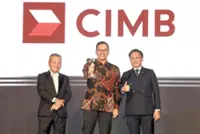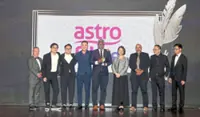BUSINESSES must stop hard-selling their products and services if they are to ride out the Covid-19 pandemic well. Rather, it is time to take a deeper look at other facets of customer needs: the customer experience and what motivates people to purchase.
“In the factory, you make cosmetics. In the beauty section of the department store, you sell hope,” said Assoc Prof Dr Brian Wong Kee Mun, UOW Malaysia KDU School of Business head.
Assoc Professor Wong said his school recently did a study and found that while consumer spending in Malaysia remains positive, people are more cautious in their purchase behaviour.
“Business owners, sales and marketing people need to pound it into their consciousness that customers don’t just buy a product or service, but spend instead on experiences that create an emotional attachment with their purchases, which are rewards in themselves,” he explained.
He called on businesses to view products and services as “stages” upon which firms conduct performances to create experiences for its customers. To learn how you can make a difference in businesses by upgrading your knowledge and capabilities, visit https://www.uowmkdu.edu.my/.
That said, to help businesses build or stage experiences, he said the first step is to understand customer experience.
Business scholars since the late 90s have defined the customer experience in two dimensions.
The first is customer participation.
He said, “Is it active or passive? If you are selling cars, then there will be active participation because customers must drive those cars to gain the experience. If you are selling lipstick, then participation will be more passive because after putting it on, the customer does not do anything further to make her lips look luscious and attractive.”
The second dimension of the customer experience, on the other hand, is the “connection” or relationship between the customer and the product or service.
“Is it absorptive or immersive? An absorptive experience seizes customers’ attention. It brings customers into the event and makes them part of the experience itself.
“Your connection with a movie is likely to be more of an absorption. Your experience in a fine dining restaurant is likely to be more of an immersion.
“Hailing a ride can be absorptive, but it also becomes immersive with more active participation when the passenger can rate the ride and give feedback they know will ultimately improve the service for everybody,” Assoc Prof Wong shared.
Adapting to new needs
These definitions of the customer experience were laid out in Harvard Business Review by business scholars James H. Gilmore and B. Joseph Pine II in 1998. In February this year, their book ‘The Experience Economy” was republished with a new preface that re-examines the principles of the experience economy.
These principles are now the underpinning concepts used in customer service management.
“The realm of possible experiences is vast and no dimension is better than another. Strive to create experiences with passive, active, absorptive and immersive elements mixed in at various degrees to give your customers something unique,” he advised.
Also, engage all five senses of the customer. “Notice how your nose gets a treat of the famous KFC aroma when you pass by? People do like to smell the books they read, and publishers enhance this experience by adding vanilla, lavender and other fragrances to create a unique scent to their books.”
But before businesses go about developing experiences for customers, they must make changes to their organisations.
Surviving trying times and gaining advantage in a reset situation requires businesses to shift their managements’ and employees’ mindsets, revamp the business model, and reposition their market standing. This can be simplified as the 3M concept, namely mindset, model and marketing.
First expounded by business coach Tom Ferry, mindset refers to possessing good self-awareness and self-governance to question the perceptions and assumptions of the organisation and see the bigger picture.
To stay relevant, businesses need to connect themselves with the market, society and stakeholders in the “oneness concept”.
Assoc Prof Wong said business used to equal profits, but not anymore. Business now equals customers plus society plus profits (oneness).
“To enhance the oneness approach, reviewing the business model is non-negotiable. Many market operators have adopted technology-based solutions, dramatically changing their business models during the lockdown and businesses have to follow suit to remain competitive,” he stressed.
He said the final “M”, which stands for marketing, requires firms to evolve into holistic business developers, integrating all business resources in the organisation effectively to produce memorable and valued customer experiences.
“In a nutshell, the 3M concept enables businesses to ride on the current digital business trend, to stay relevant and be sustainable in the new normal,” he concluded.
To find out how you can gain global success with UOW Malaysia KDU, log on to https://www.uowmkdu.edu.my/





